
More Mexican Grand Prix News
Contradicting Andrea Stella’s Encouragement, Lando Norris Baffled by McLaren’s “Shocking Difficulties”
Lando Norris contradicts McLaren team boss Andrea Stella's optimism ahead of the Mexican GP action with shockign difficulties.

Defending Max Verstappen, Christian Horner Accuses FIA’s Laughable Rules for Fans’ Boredom
Dive into the F1 drama off the track with Christian Horner's take on the Max Verstappen era, and the buzz around Perez's future at Red Bull.
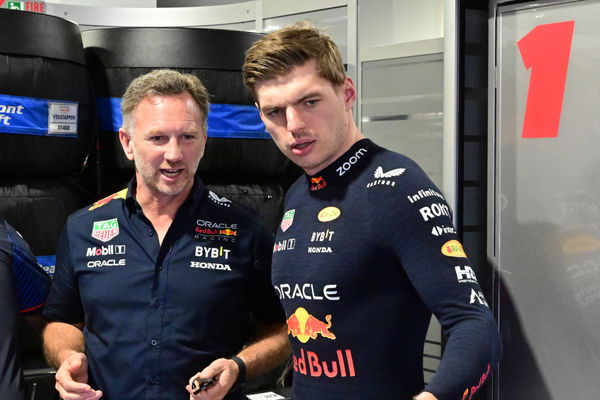
“This Is Why I’m a McLaren Fan”: Lando Norris & Co.’s Special Taylor Swift Tribute Unites Swifties & Papaya Army
McLaren blends F1 & Taylor Swift magic in a tweet, igniting a digital fiesta among fans. Swifties & Papaya Army unite in celebration!
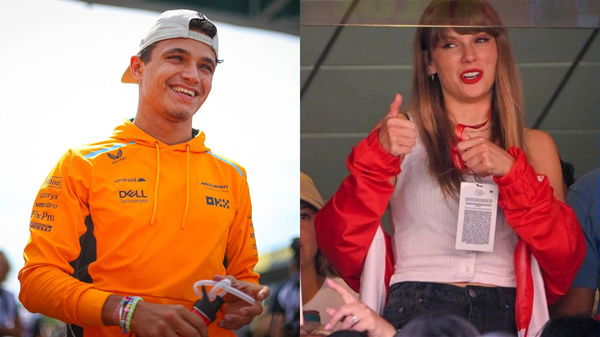
Sergio Perez Makes Striking Revelation on Mexican Fans as Death Threats Force Max Verstappen to Take Desperate Measures
Drama unfolds as Verstappen ups security at the Mexican GP amid rumors of a rift with Sergio Perez. But, it's all about love and 'Racepect'.
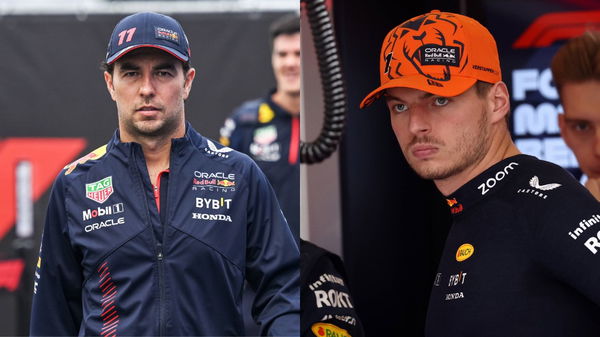
Battle for No. 1 Intensifies as Daniel Ricciardo Gains Lucky Headstart Ahead of Yuki Tsunoda At Mexican GP 2023
The US GP was not the comeback Daniel Ricciardo was hoping for but Tsunoda's Mexican GP curse might end Ricciardo's streak of misfortune!

“Something Loose B/W My Legs”: Max Verstappen Unknowingly Mirrors Sebastian Vettel’s Hilarious Antics to Warn Christian Horner & Co.
Whether or not Max Verstappen would've intended it, he paid tribute to Sebastian Vettel at the Mexican GP with a certain radio message.

Charles Leclerc’s GF Alexandra’s ‘Poor’ Choices Trolled as Fans Left Outraged
Alexandra, girlfriend of Charles Leclerc, hasn't caught a break since they started dating. She faced fire once again at the Mexican GP.
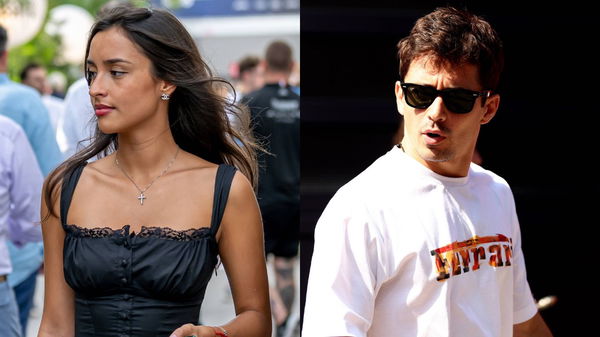
“Oh No, Game Over”: Lando Norris Left Sulking Over “Freaking Mess” as Fashion Faux Pas Haunts Him
When Lando Norris entered the paddock at the US GP, he wasn't very happy with a certain asset. of his Did the Mexican GP treat him better?
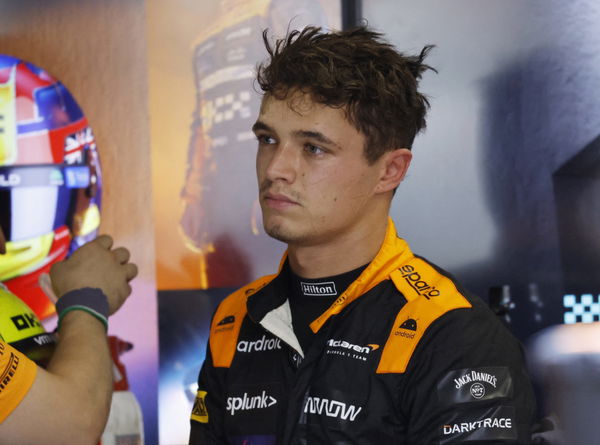
Toto Wolff Joins Forces With Max Verstappen to Expose FIA’s Hypocrisy
With the Mexican GP being the first time teams talked about the disqualifications in Austin, Toto Wolff sided with Max Verstappen.
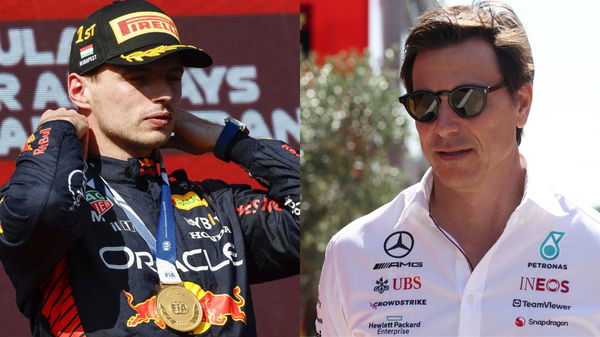
“Ferrari Sabotaging Leclerc’s Car Again”: Fred Vasseur & Co.’s Biased Plan Faces Fans’ Fury as Carlos Sainz Emerges Favorite
Despite the pleas of Charles Leclerc no new engine is being brought to the Mexican Grand Prix and fans are unhappy

“Sorry Checo but I Have an Issue”: Carlos Sainz’s Mexican GP Weekend Goes From Bad to Worse as Shocking Issue Crops Up
After a weekend of mixed emotions at the US GP for Ferrari, the team hasn't gotten to a good start at the Mexican GP with Carlos Sainz.

“Difficult Environment for Him”: Lewis Hamilton Takes Veiled Jibe at Helmut Marko Over Sergio Perez’s Mental Struggle
Lewis Hamilton Mexican GP remarks to a Red Bull spokesperson sparks debate. Is he playing mind games or showing sportsmanship to Checo?

About Mexican Grand Prix
Mexican Grand Prix 2023 - Latest News, Winners, Qualifying, Circuits, Track
Hola race fans! Ever wondered about the story behind the ever-vibrant Mexican Grand Prix? Well, it's time to rev up your engines, because we're taking a lap down memory lane!
The Mexican Grand Prix zoomed onto the scene as a non-championship event in 1962 at the Magdalena Mixhuca circuit. Picture this: an international racetrack nestled in a park in the bustling heart of Mexico City, reminiscent of the iconic Monza in Italy. This circuit, standing proud at a dizzying 7350 ft above sea level, was not just a racetrack. It was a thrilling rollercoaster, replete with bumps, and a jaw-dropping 180-degree Peraltada corner.

via Reuters
Formula One F1 - Mexico City Grand Prix - Autodromo Hermanos Rodriguez, Mexico City, Mexico - November 7, 2021 Third placed Red Bull's Sergio Perez celebrates on the podium REUTERS/Edgard Garrido
In its debut year, Jim Clark snatched a win for Team Lotus in a race that witnessed a poignant moment: the loss of the rising Mexican star, Ricardo Rodríguez. Fast cars, swift passes, heartbeats syncing with the roar of the engines... and a couple of crowd control issues. By 1970, the race's popularity exploded, drawing a whopping 200,000 spectators. But with great fame came great challenges. Bottles on the track, postponements, and yes, a canine cameo led to the event's temporary cancellation.
The event saw a resurgence at the Autódromo Hermanos Rodríguez in 1986. Named in honor of racing siblings Ricardo and Pedro Rodriguez, this circuit, despite its bumpy rides, saw the likes of Gerhard Berger and Alain Prost take home the trophy.
Yet, after 1992, the roar of the engines went silent in Mexico City...until 2015, when it made a grand comeback. This time, with a touch of modernity by the circuit guru, Hermann Tilke. Cutting the Peraltada in half, the track now ventures into the old Foro Sol baseball stadium, offering fans a unique F1 panorama.

via Reuters
Formula One F1 - Mexico City Grand Prix - Autodromo Hermanos Rodriguez, Mexico City, Mexico - October 30, 2022 Red Bull's Max Verstappen celebrates on the podium after winning the race with second placed Mercedes' Lewis Hamilton and third placed Red Bull's Sergio Perez REUTERS/Edgard Garrido
Nestled in one of the globe's most vibrant cities, the Mexican Grand Prix is where sports meets culture. The heart-thumping action at the Autódromo is just a metro ride away from the cultural fiesta of downtown Mexico City. And if you're looking for the best seat in the house? Dive into the pulsating energy of the Foro Sol, where the podium celebrations are nothing short of legendary.
Now, gear up, folks! The 2023 Mexican Grand Prix is slated for Sunday, October 29, with 71 adrenaline-filled laps over a 2.674-mile circuit. Will Valtteri Bottas' lap record of 1:17.774 withstand this year's fierce competitors? Only time will tell!
So, if you've not marked your calendar yet, it's time to do so. The Mexican Grand Prix is not just a race; it's an emotion, a legacy, and an experience of a lifetime!
Past Winners
| Max Verstappen | Netherlands | 4 | 2017, 2018, 2021, 2022 |
| Jim Clark | Great Britain | 3 | 1962*, 1963, 1967 |
| Alain Prost | France | 2 | 1988, 1990 |
| Nigel Mansell | Great Britain | 2 | 1987, 1992 |
| Lewis Hamilton | Great Britain | 2 | 2016, 2019 |
Past Constructors Winners
| 4 | Lotus | United Kingdom | 1962*, 1963, 1967, 1968 |
| 4 | Red Bull | Austria | 2017, 2018, 2021, 2022 |
| 3 | McLaren | United Kingdom | 1969, 1988, 1989 |
| 3 | Williams | United Kingdom | 1987, 1991, 1992 |
| 3 | Mercedes | Germany | 2015, 2016, 2019 |
| 2 | Ferrari | Italy | 1970, 1990 |
Mexican Grand Prix Circuit Details
Location: The Autódromo Hermanos Rodríguez is a 4.304 km (2.674 miles) race track in Mexico City, situated within the Magdalena Mixhuca Sports City public park.
Namesake: The circuit is named in memory of Mexican racing brothers, Ricardo and Pedro Rodríguez. Ricardo tragically died during practice for the non-Championship 1962 Mexican Grand Prix, and Pedro faced a similar fate nine years later.
History: In 2001, the track underwent significant renovations. Despite announcements in 2012 and a listing in 2014, the Mexican Grand Prix only officially returned to the F1 calendar in 2015. The circuit has also hosted NASCAR and A1 Grand Prix races, with notable winners like Martin Truex Jr., Denny Hamlin, and Juan Pablo Montoya.
Unique Features: Designed by Óscar Fernández in 1953, the circuit's thin air reduces aerodynamic drag, allowing higher downforce setups. Due to its elevation of 2,238 m (7342 ft), the track's thin air presents challenges for both drivers and cars. The track's design includes a fast final corner called the Peraltada, reminiscent of Monza's Parabolica curve. For F1's return in 2015, the track underwent significant modifications under Hermann Tilke's direction. The modern F1 cars have reached speeds over 370 km/h on the main straight.
Events and Festivals: Apart from motorsport events, the racetrack hosts the Electric Daisy Carnival (EDC Mexico), a massive music festival.
Where To Watch?
| India | F1 TV |
| USA | ESPN, ESPN Deportes |
| United Kingdom | Sky Sports, C4 |
| Germany | Sky Deutschland |
| France | Canal+ |
| Italy | Sky Italia |
| Spain and Andorra | F1 DAZN |
For a comprehensive list of broadcast partners in other countries, click here.
Mexican Grand Prix Tickets
Alrighty, amigos! Looking for that golden ticket to the Mexican Grand Prix? Well, grab your sombreros and head on over here to snag one! And just like that, you're all set for the fiesta of fast cars. That's the Mexican Grand Prix for ya, folks! 🏎️🌮🎉


